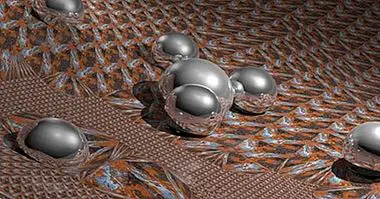A funny animation short about our weapons of seduction
Seduction is a dance of unconscious movements that they bring us closer to each other with the aim of seeing each other and recognizing each other, which aims to enjoy preserving our own need, always understanding that of the person in front of us.
It is a process in which two individuals approach and interact with a more or less explicit purpose of having an intimate encounter. Weapons of seduction make flirting more effective and exciting.
- Related article: "Anti-attraction: 7 gestures and attitudes of people who do not seduce"
A short on seduction
With a funny animated short titled Divided brain, the therapists of the Mensalus Psychological and Psychological Assistance Institute talk to us about weapons of seduction and self-confidence.
You can see the short film below.
When do we try to seduce?
By nature we want to like, not only in the sexual field, but in all areas. Seduction goes much further. We seduce constantly.
Weapons of seduction are those verbal and nonverbal communication skills that make it easier for us to express and receive feedback. It is what we would colloquially call "looking for a trace".
From the most psychological view, how can we understand this "leave a trace"?
We can understand it from the ability to connect with the person or persons to whom we are going. For this, one of the main keys is the empathic look and listen, that is, the ability to dedicate our time and energy to understanding what is happening at the moment we are located, without evading and being physically and mentally present.
Is the seduction born or is it made?
Perhaps we could say that neither one nor the other. The process of seduction is the result of a combination: to be faithful to how one is "born" (one's essence) and to be attentive to everything that also, with time and experience, is done. The balance between personality traits, more core values and vital learning, offers an image of ourselves full of meaning (this is the letter of presentation for seduction).
We transfer this sense when we communicate. The harmony between the elements that define us gives and gives security, a security that others see and respond to it.
How can we work this security?
The phrase "to like you have to be sure of yourself" claims that "the pieces of the puzzle" fit, that is, that what we show is in line with our thinking and our emotion.
From the Psychology we work the coherence between our system of beliefs, feelings and actions from dynamics that show who the person is, what moves them and what goals they want to achieve. Sometimes, the goals we pursue do not fit with our vital needs and that is where the discomfort resulting from the incongruity appears.
To be aware of those comfort zones in which we remain immersed by "fear of" (fear of disappointment, fear of being wrong, fear of losing, fear of not liking, fear of being different, etc.) is the first step in reconnecting with nuclear values (those that define how the person builds life) and draw an action for change.
In this sense, social desirability (the desire to like and be accepted) can obfuscate the individual need ("others expect me to ..."). The seduction seeks to like preserving the own need and understanding the one of the person that we have in front.
So, to seduce is empathy essential?
Exact. And this is a failure that we often comment on, not only in terms of seduction in the sexual domain, but also in the world of advertising, information, services, etc.
One of the successes of seduction is to understand what is happening around us through maintaining the spectator position (the objective view).
Likewise, enjoying the bond we create, whatever the type, is another of the great ingredients we seek. Maybe it sounds like a cliché, but it's a great truth. From the moment we stop understanding seduction as a pleasant act of personal fulfillment, it will possibly be much more complicated to see and be seen.
What the psychology of attraction says
Attraction is a phenomenon intimately linked to seduction, but ... what does science say about it? What results have the investigations on the attraction thrown? Do we like handsome or ugly? What do the studies about body language tell us?
If you are interested in knowing some of the scientific conclusions about attraction, you can read this article: "The psychology of attraction, in 12 keys".



















